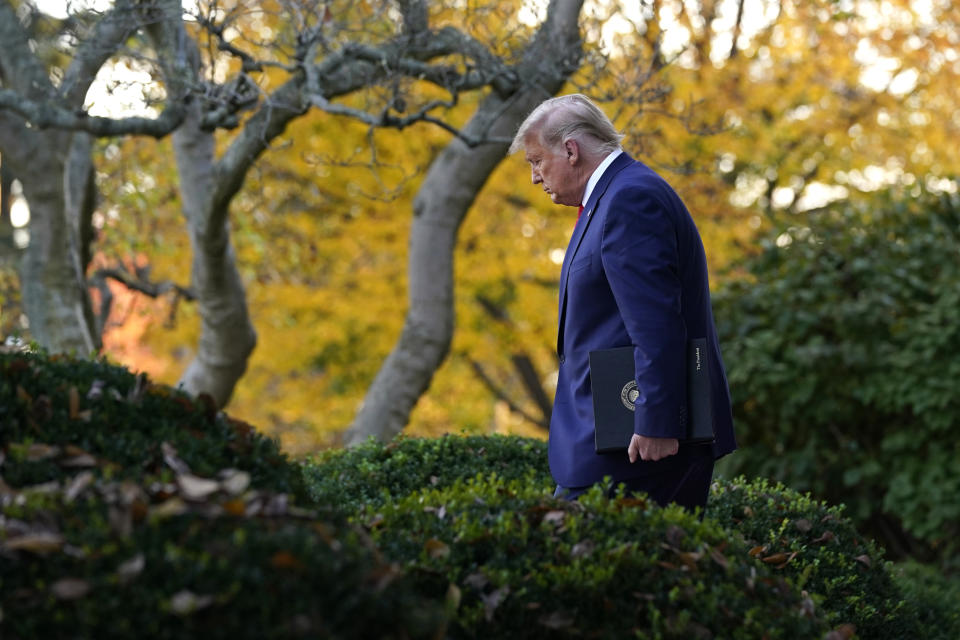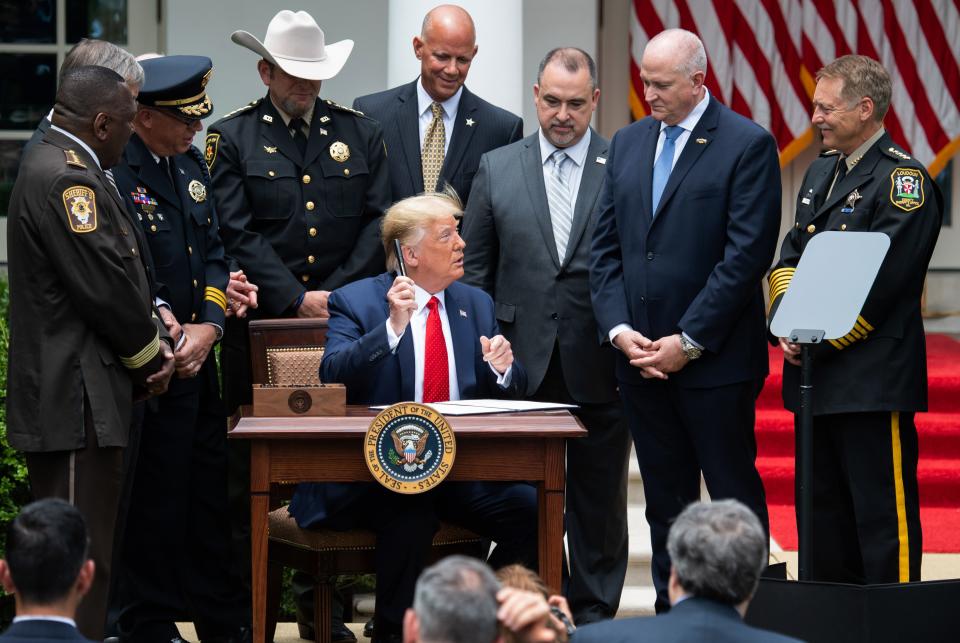The 4 lessons of Trump
President Trump is going out in a blaze of disgrace, refusing to accept Joe Biden’s legitimate victory and subordinating national priorities to his own petty grievances. Historians will likely peg Trump as one of the worst U.S. presidents, perhaps putting him at the very bottom of the list.
Yet Trump is a phenom. He defeated two political dynasties—the Bushes and the Clintons—on his improbable path to the White House. He’s a chronic liar, impeached by the House of Representatives, who supports white supremacists and quack conspiracy theories. Yet 73 million Americans still voted to give him a second term, and he may remain a kingmaker in the Republican party. If Trump starts a media company, as many expect, he’ll probably begin with more loyal followers than any cable news channel can boast.
Trump has had three careers: real-estate developer, entertainer and politician. He’s world-famous now for his fractious four-year term as U.S. president, but the characteristics of Trump’s governing style have been hallmarks of his brash career all along. Political scientists will study Trump for decades, trying to reckon how he wrecked so many norms, subverted American democracy and seemingly got away with everything.
But there’s another way to study Trump: as a striver who succeeded when he shouldn’t have, a maverick who vastly outperformed expectations, a sorcerer whose black magic many of us would love to possess. Trump is a complex character motivated by who-knows-what demons, but there’s something enviable amid all his dysfunction. Here’s a starter list of things Trump and his presidency have taught us:

The power of audacity. Trump makes his own rules, something that’s often celebrated, rather than derided, in entrepreneurs. Business icons such as Elon Musk, Jeff Bezos, Richard Branson and numerous others break many rules and norms while finding new ways to solve problems and serve customers. The difference with Trump is his lack of a stopping point. There’s evidence he broke the law as president, perhaps repeatedly. Prosecutors in New York are now probing whether Trump’s business committed fraud before he became president. Trump has spent his whole career in litigation, but his post-presidential life could be more legally perilous than any other time of his career.
Thing is, this somehow works for Trump. His brand is a kind of gold-plated combativeness cheered by many who feel cheated by the same system of laws and rules Trump flouts. The most discordant element of Trump’s political appeal is his cultlike popularity among disenfranchised whites who would jeer any other effete East Coast elitist who wears cuff links and fears germs. Is there a formula here? Could somebody who’s not Trump replicate this kind of connection, whether in a political campaign or product promotion? Or is it uniquely Trump’s? We’ll probably find out as Trump leaves office and imitators try to appropriate Trumpism for their own purposes. Best guess, for now: Only Trump can do this.

The appeal of crudeness. As a candidate and then as president, Trump denigrated women, minorities, immigrants, prisoners of war, transgender Americans, former staff members, the media and virtually every political opponent. His refusal to concede to Biden in the presidential race epitomizes the crassness of the Trump presidency. And his most ardent supporters love it. Trump thinks and talks like them and doesn’t care whom he offends.
The point is not to validate racism, sexism, xenophobia or any kind of cultural vilification. The point is to tune in to the frustrations of ordinary people fed up with rules they don’t understand about what they’re allowed to feel and say. There are sometimes fuzzy lines between what’s acceptable and what’s not, and they change over time. Cultural tension is part of this evolution. In fashion and product design, marketers know that polarizing styles often succeed because the disdain of some triggers the embrace of others. Trump’s meanness is unacceptable and unnecessary, but trying to please everybody with woke blandness isn’t the answer. Success awaits whoever can harness Trump’s willingness to offend, without the hatefulness.

The holes in the system. Like water in a flood, Trump finds structural cracks and weakens them to the point of collapse. Several New York Times exposes have shown how Trump’s business exploited gaps in state and federal tax law to lower its tax bills for decades—perhaps illegally. As president, Trump has demonstrated that checks on presidential power little needed until now are largely ineffective. A Justice Department policy prohibiting the prosecution of a sitting president may have allowed Trump to obstruct justice in the Robert Mueller probe, without consequence. Congress is supposed to exercise oversight power of the executive branch, but the House of Representatives impeached Trump for abusing his power, with no apparent effect, since the Senate failed to convict. While adding to his mystique as an escape artist, Trump also identified what needs fixed in American democracy, lest the next aspiring authoritarian succeeds where Trump failed.
The need for new material. Trump didn’t evolve during his four years in office, and that’s a major reason he’s joining Herbert Hoover, Jimmy Carter and George H. W. Bush as a one-term president who fumbled the home-field advantage of incumbency. It’s remarkable that Trump got to the White House in the first place, but once there, he never expanded his market share among the electorate or gave the audience fresh surprises. The script for Trump’s second term was the same litany of white grievances as the first, and the show got stale. As with Trump’s six business bankruptcies, his audacity led to epic accomplishment, but poor follow-through brought the whole thing down. Trump lunged for greatness, but couldn’t keep it.

Trump will have a fourth act, as a former president, media elephant and provocateur extraordinaire. Former one-termers Carter and Bush built upon their reputations in retirement, and even Richard Nixon, who resigned under threat of impeachment, rehabilitated himself somewhat. But they all left office quietly, unencumbered by collateral damage from their presidencies. Trump, by contrast, is throwing a tantrum on the way out and dragging legal and ethical baggage behind him. Maybe it will be Trump who learns a few lessons in retirement.
Rick Newman is the author of four books, including “Rebounders: How Winners Pivot from Setback to Success.” Follow him on Twitter: @rickjnewman. Confidential tip line: [email protected]. Encrypted communication available. Click here to get Rick’s stories by email.
Read more:
Get the latest financial and business news from Yahoo Finance
Follow Yahoo Finance on Twitter, Facebook, Instagram, Flipboard, SmartNews, LinkedIn, YouTube, and reddit.
